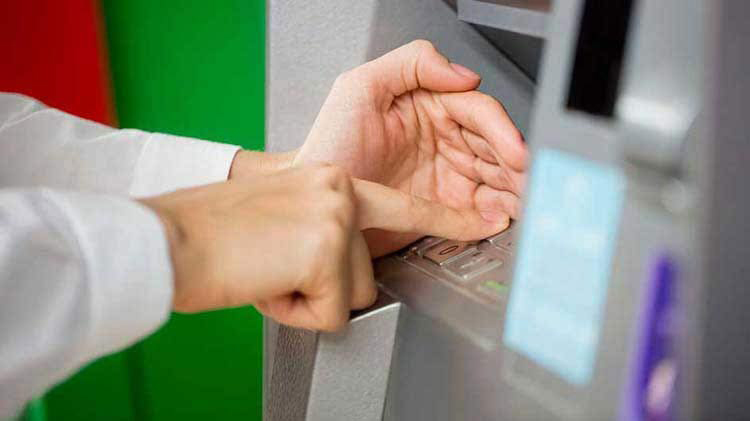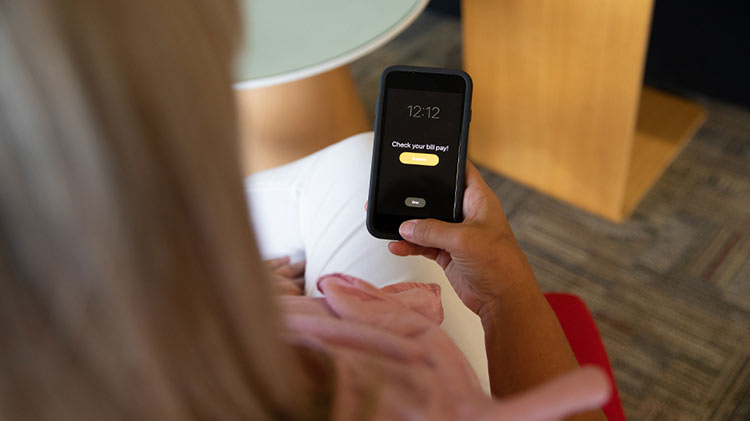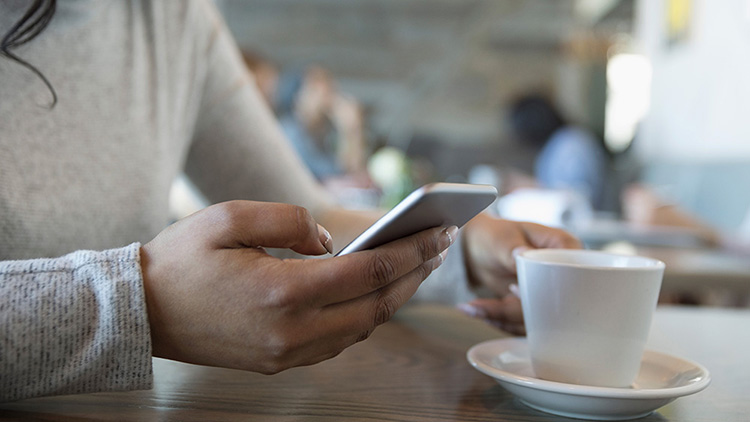Credit card, debit card & ATM security tips to help prevent card fraud
Learn about credit card fraud and how to help protect yourself with common security precautions.
Modern banking is convenient but you still need to stay vigilant to protect your credit and debit cards, which thieves can use for both financial theft and identity theft.
What is credit card fraud?
Card fraud is when another person uses the information from your card, or steals your card, and then takes cash advances from your account or makes unauthorized purchases in your name. It is considered a form of identity theft.
Examples of how credit card fraud can happen
- Your mail. Thieves may dig through your trash looking for statements or receipts that might include account numbers. A paper shredder can be your best friend — shred any mail or documents with account information on them. You may err on the side of caution and shred anything that has your name on it — or consider going paperless.
- Credit card skimmers. Thieves attach a skimming device on an ATM or gas pump reader to steal credit card information from anyone who swipes their card.
- Computer hacking. Someone gains unauthorized access to your computer and steals your card’s information from your files.
- Fake emails such as Phishing. These emails might have links or a phone number asking you to contact them. Never click on links if you aren’t familiar with the sender of the email. If it appears the email is from your financial institution, call them with the numbers you have and ask if they sent you an email.
- Calls about prizes or money transfers. Never provide your account information and ask a lot of questions. If they ask for your account information and seem rushed – that is a pretty good indicator that it may be a scam. Do a web search to find out if the call is legitimate.
- Shoulder surfers. These are people who will look over your shoulder to steal your personal data, so it’s best to be aware of your surroundings. Keep your hand over your card when using it or typing in your PIN so the numbers aren’t visible to prying eyes.
ATM, debit card and credit card security tips
Here is some card security information, as well as some pointers about protecting yourself and your identity, when using ATMs.
Credit and debit cards
- Don’t carry all your cards all the time. When traveling, take only what you need. Do you need to have all your cards with you daily?
- Keep them in a safe place. Always keep your credit and debit cards in a safe place; never leave your card lying around the house or on your desk at work. No one should have access to the card but you.
- Report lost or stolen cards. If your card is lost or stolen, notify your bank immediately. Many banks offer online resources to make reporting a lost card even easier.
- Avoid writing your full card number on checks. If you use a check to pay your credit card bill, only include the last four digits of your card's account number on your check payment.
- Create strong passwords. When setting up new cards, remember to create a strong password that's unique to each account. Avoid using the same password for your bank account and retail sites.
Chip cards
Chip cards are one more way to help prevent credit theft. The thumb-size metallic square on your credit card is a computer chip, which turns your credit card into a chip card and makes it nearly impossible for hackers to clone credit cards. Unlike the magnetic stripe on traditional credit cards, chip cards don't store sensitive information. Instead, each time the card is used, a unique transaction code is generated. If hackers intercept that transaction, they will not be able to use the code again.
As you get up to speed on chip cards, keep these five facts in mind:
- Insert, don't swipe. Instead of swiping the magnetic stripe, insert the chip card into a chip reader.
- More secure, but not foolproof. Though chip cards are more secure, they can still be compromised. If your physical card is lost or stolen, it can be used by someone else since most cards only require a signature. What's more, the credit card chip doesn't protect against online fraud, so your card could still be compromised by internet purchases.
- They're slower. We've all grown used to the speed of swiping, but the chip reader takes longer. Expect to spend a few more seconds at the checkout line.
- You can use the magnetic stripe as backup. While you should always use the chip reader, not all retailers have it installed or activated yet. If they do not, chip cards also have a magnetic stripe you can use.
- Fraud liability doesn't change for the consumer, but it does change for the card issuer and the merchant at point of sale. If there are fraudulent transactions on your credit card, you still have the same fraud protections with a chip card as before (you may be required to pay up to $50 for those transactions).
PIN safety
- Keep your Personal Identification Number (PIN) a secret. Never share your PIN, even for the sake of convenience.
- Change your PIN on a regular basis. Many banks allow you to easily change your PIN online or by phone.
- Hide written down PIN numbers. If you must write down your PIN, do not keep it in your wallet, purse or on the card itself.
- Select a safe PIN number. Avoid numbers and letters that can be easily identified or associated with you. Do not use your initials, birth date, telephone number or any part of the card number.
- Take precautions from others. When using an ATM, do not allow others to see your PIN, what type of transaction you are making or how much money you are withdrawing.
ATM security
- Be wary of people trying to help you with ATM transactions. If you feel unsafe, or as though something is amiss, move on and find another location to complete your transaction.
- Always be ready for your transaction. Have your card ready as you approach the ATM. This will help you avoid spending time digging through your purse or wallet.
- Watch out for scams. Do not use an ATM that appears unusual or offers options with which you are not familiar or comfortable. Some scam artists plant unregistered ATMs to collect card numbers and PINs.
- Try to avoid large cash withdrawals and take caution when retrieving your cash. Do not count or display any money you received from the ATM.
- Take your receipts with you. It’s best not to leave any identifying information — your receipt may contain the name of your bank or your account balance.
More thoughts on protecting yourself from credit fraud
- Regularly review your account transactions. Many banks have an app, so you might want to make it a daily practice to look at your accounts — or set up alerts for transactions. There are usually several different alert types available: dollar thresholds, purchases when you’re not present and online transactions are just a few. And you can typically choose if you want to get those alerts through email or text.
- Check your credit reports. You can order a free copy from each of the three credit bureaus once a year through AnnualCreditReport.com. Review them carefully to make sure the accounts and loans listed are legitimate.
- Fraud liability. The Fair Credit Billing Act was established to help protect you against fraud and to limit your liability to $50. Some financial institutions offer $0 fraud liability.
For added protection, consider contacting a State Farm® agent today to talk about identity restoration insurance.




